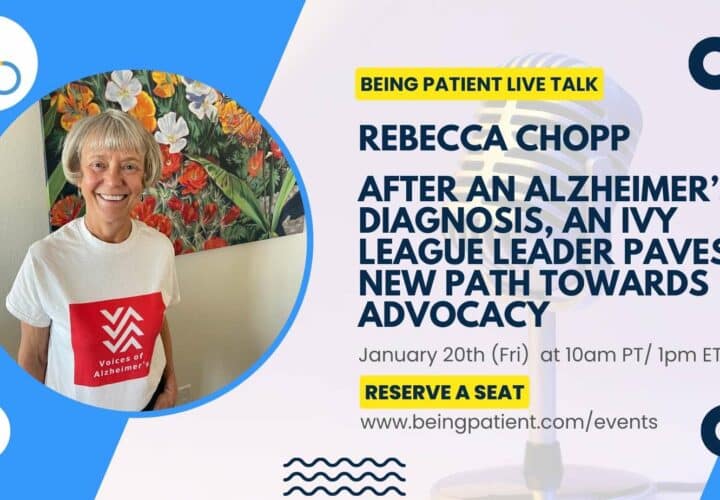If you were recently diagnosed with cognitive decline, consider trying new hobbies that could provide brain-boosting benefits.
Whether it’s mild cognitive impairment or an advanced stage of Alzheimer’s, a diagnosis of cognitive decline is life-changing. It can also be motivating — an opportunity to make a change, or pick up an activity you’ve long been curious about but never made time for.
The following hobbies can be enjoyed solo or with a partner — and people living with diagnoses of MCI or dementia have shared that picking up one of these new pastimes has challenged them in unexpected ways and added new layers of meaning to daily life.
1. Horseback riding
Horseback riding and other equine-assisted services like grooming, caring for and interacting with horses have been shown to improve the mental and physical health of people living with dementia.
Corliss Wallingford offers horseback riding lessons to people living with physical, cognitive and emotional disabilities. According to Wallin gford, she said she has seen remarkable positive changes in the mood, energy level, and even in the cognitive symptoms of people with dementia with whom she has worked at her Simple Changes Therapeutic Riding Center.
Beyond the science-backed benefits of spending time with animals, activities at Simple Changes are usually performed in groups — and group activities have been proven to promote social interaction and even reduce dementia risk. Being outside on the farm offers its own benefits. It “awakens all your neural pathways and sensory pathways, because it’s a different environment,” she said.
2. Gardening
What if planting the perfect garden could serve a higher purpose that extends beyond just boosting curb appeal? Gardening — tending to fruits, vegetables, or flowers, for example — may have major benefits not just for one’s landscaping, but for their health, including reduced stress and lower blood pressure. For people living with dementia, one 2021 study suggested that horticultural therapy may be able to reduce apathy and improve cognitive function after just 10 weeks.
Rutgers University professor Joel Flagler, a registered horticultural therapist, said the responsibility of caring for another thing, like a plant, can bring a sense of empowerment to a person living with dementia.
“Any time a person reconnects with nature, good feelings and healing can come,” he told Being Patient. “It’s important to remember that the plant doesn’t discriminate: The plant doesn’t care if the person has dementia, or they’re in a wheelchair, the plant is ready to respond to that person.”
Horticultural therapy involves using plants as tools to stimulate memory, facilitate conversation, and engage one’s tactile and olfactory senses. Building focus and participation through social activity is one of the main goals of the therapy. Horticultural therapy also creates opportunities for practicing hand-eye coordination, a complex cognitive ability which unites one’s visual and motor skills.
3. Running
Phil Gutis, a former New York Times reporter and Being Patient columnist, lives with early-onset Alzheimer’s. But his diagnosis hasn’t stopped him from living a brain-healthy lifestyle — and even pushing himself to new limits. Gutis ran 17 marathons in just three years. As a late-in-life runner, Gutis began running in races all over the country after his diagnosis, raising money for numerous causes including AIDS research and, of course, Alzheimer’s research with the Alzheimer’s Association.
Going from no running at all to taking up marathoning may seem like a bit of a leap, but for those with the physical mobility to do so, studies show that even going for a short jog can offer real cognitive health. Irisin is a beneficial hormone that is secreted from muscles in response to exercise, and has been found to potentially preserve our brain’s memory and thinking skills.
Running is also proven to be beneficial in treating symptoms of depression. The connection between dementia and depression is well-documented — more than 60 percent of people with dementia are also diagnosed with depression. Taking up running after a cognitive impairment diagnosis could improve your overall mental health.
4. Cycling
Following his early-onset Alzheimer’s diagnosis at age 50, Peter Berry realized his newfound purpose to educate others about living well with dementia. He combined his passion for cycling with Alzheimer’s education and advocacy efforts, cycling 350 miles across four countries and raising nearly $4,400 for Young Dementia UK.
“When I go cycling, I leave dementia at home,” Berry said. “I become what I was, not what I am.”
In the experience of Zelik “Zel” Bockneck, a 90-year-old avid skier and hiker living with an Alzheimer’s diagnosis, it doesn’t need to be cycling — any hobby involving movement is a plus. “Everything active — exercising, stretching, running, walking — is a big, big help keeping your body in shape,” Bockneck told Being Patient. “If your body’s in shape, you feel comfortable, calm, good, able to get along and do the mental things easier.”
5. Painting
Creative pursuits like painting and drawing can have cognitive benefits for people in any stage of cognitive decline. Rebecca Chopp was serving as the Chancellor Emerita of the University of Denver when she was diagnosed with Alzheimer’s in 2019. Chopp — who was never a painter previously — found that, after her diagnosis, the unexpected happened: Her creativity flourished.
“I discovered that when I was painting, I couldn’t think about my Alzheimer’s,” Chopp said. “Sometimes I could feel my mind stretch, and I loved it. I didn’t worry about the products. I didn’t care about that. It was the doing and the learning.”
6. Quilting
Reda Harrison first started experiencing symptoms of cognitive decline around age 58 and was later diagnosed with early-onset Alzheimer’s. Quilting is a hobby Harrison had enjoyed for years before this, and after her diagnosis, she doubled down, finding it seemed to offer new benefits.
“I love quilting […] It helps me cognitively and clears my head,” Harrison said. “It’s something I enjoy, and I don’t have to stress over it.”
Quilts themselves offer other benefits to people living with cognitive decline. Touch quilts, which are textured, can provide sensory stimulation that causes relaxation and enjoyment.
7. Dance
Dr. Julia Basso, a certified yoga instructor, dancer, and a neuroscientist at the Embodied Brain Lab at Virginia Tech, is researching the impact of dance and movement on the brain, particularly as it relates to people living with Alzheimer’s and dementia.
“Even with a single acute session of dance, there are impacts on the level of mental health,” Basso told Being Patient. “We see decreased levels of depression and anxiety and also increased levels of self-esteem and positive affect.”
The science behind dancing with another person, which also fosters socialization and connectedness, is another field that Basso is exploring. The physical movement dance provides coupled with its social component make it an excellent choice for someone living with cognitive decline.
Taking up a new hobby can be good for the brain, no matter what stage of health or aging a person is in — it helps our brains build up something called neuroplasticity.
Dr. Mark D’Esposito, a neurologist at University of California Berkeley, studies the brain’s ability to restructure itself and the neurons it already has. Learning a new and challenging skill can be a way to boost brain health by engaging in different modules of the brain and encouraging this restructuring, he told Being Patient.
“We’ve learned that when [neural] networks are more integrated, more communicating, and able to really take information from all different walks of life and pull it together, our brain is the healthiest,” D’Esposito said. “As you’re learning that skill, it’s actually these modules integrating and talking to each other that, [in] the end, the brain reorganizes in a way that forms new connections between these modules.”




